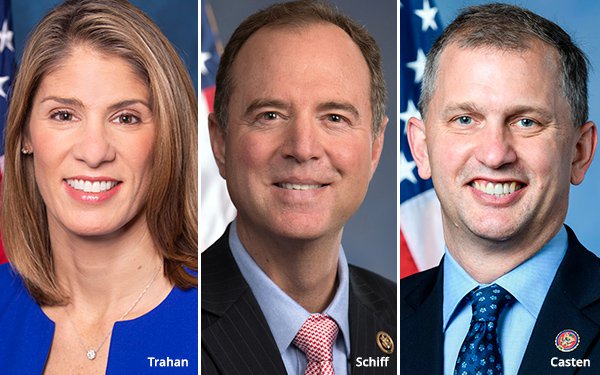
One day after X Corp. sued a
nonprofit that studies online hate speech, a trio of Democratic lawmakers blasted the company for its "hostile stance" toward researchers.
“Independent researchers play an outsize
role in providing transparency and accountability into not just X, but all social media platforms,” Reps. Lori Trahan (D-Massachusetts), Adam Schiff (D-California) and Sean Casten (D-Illinois)
said in a letter sent to owner Elon Musk and CEO Linda Yaccarino.
X Corp.'s complaint against the nonprofit Center for Countering Digital Hate, filed in federal court earlier this week, shows
that the company “is uniquely resisting those important efforts and stifling unbiased research in the public interest," the lawmakers write.
They add that X Corp. has made "troubling
decisions that appear calculated to harass, silence, and suppress research and accountability” for extremist content, hate speech and other objectionable material on the platform.
advertisement
advertisement
The
lawmakers note that since acquiring X, Musk has shed many of the company's former trust and safety employees and reinstated accounts of people who were banned for violating content policies.
Those moves have “coincided with a documented rise in hate speech and extremism on X,” the lawmakers add, citing research by the Center for Countering Digital Hate, the Australian
government and others.
“Independent research is critical to understanding the proliferation of hate speech and extremism online, and it has raised legitimate and serious questions
regarding X’s business practices since Mr. Musk’s acquisition,” the letter continues.
In addition to the lawsuit against the nonprofit, the lawmakers call particular
attention to the company's recent decision to charge researchers for access to the API (application programming interface), which allows people to collect data from the platform.
In March, the
same lawmakers criticized that move, suggesting in a letter that it could hamper initiatives to research online safety, as well as humanitarian efforts like the then-underway attempt to rescue
survivors of the Turkey earthquake.
At the time, Trahan and the others asked Musk to answer a series of questions regarding its decision to charge for API access -- including why the company
began charging, whether it would offer discounts for academic research, and whether it would “commit to ending the practice of retaliating against journalists and researchers that publish
negative reports about X.”
Musk failed to respond, according to the lawmakers.
On Tuesday, they asked the same questions again, as well as new ones regarding content -- including
whether the company has been able to decrease hate speech and extremism on the platform.
The lawmakers have requested a response by August 15.